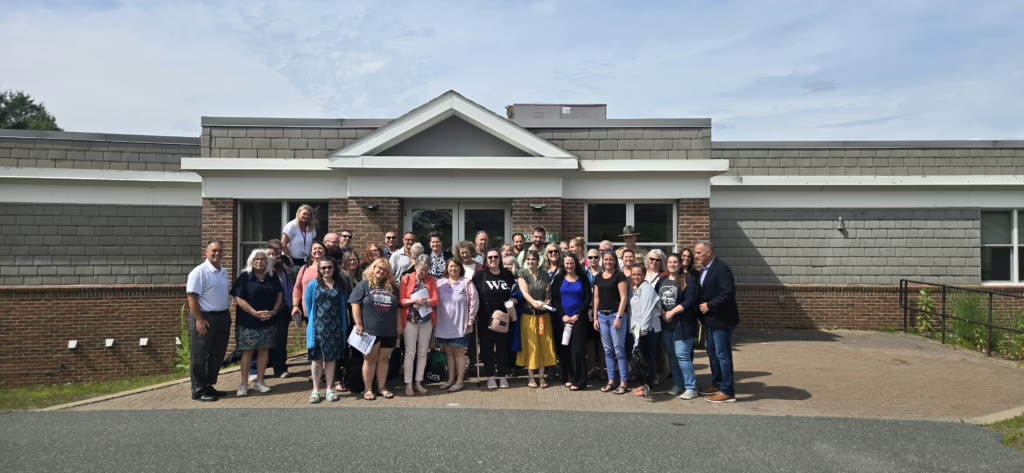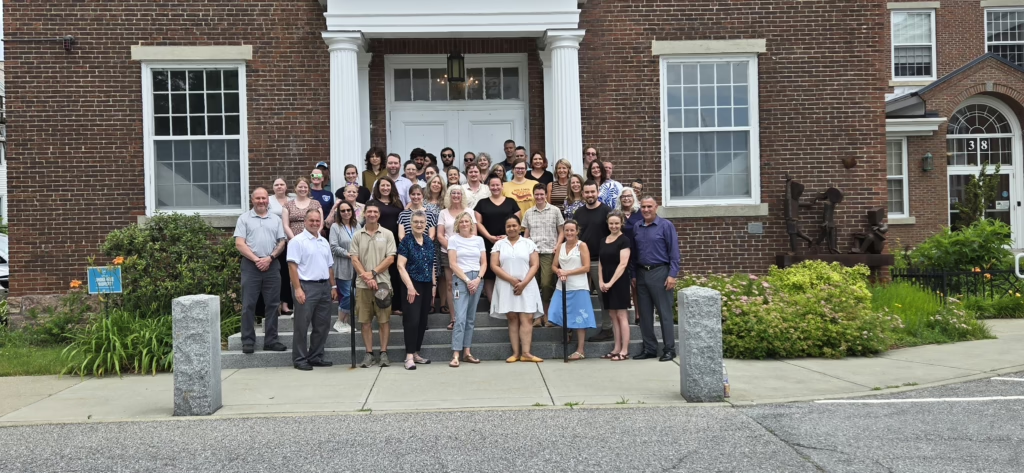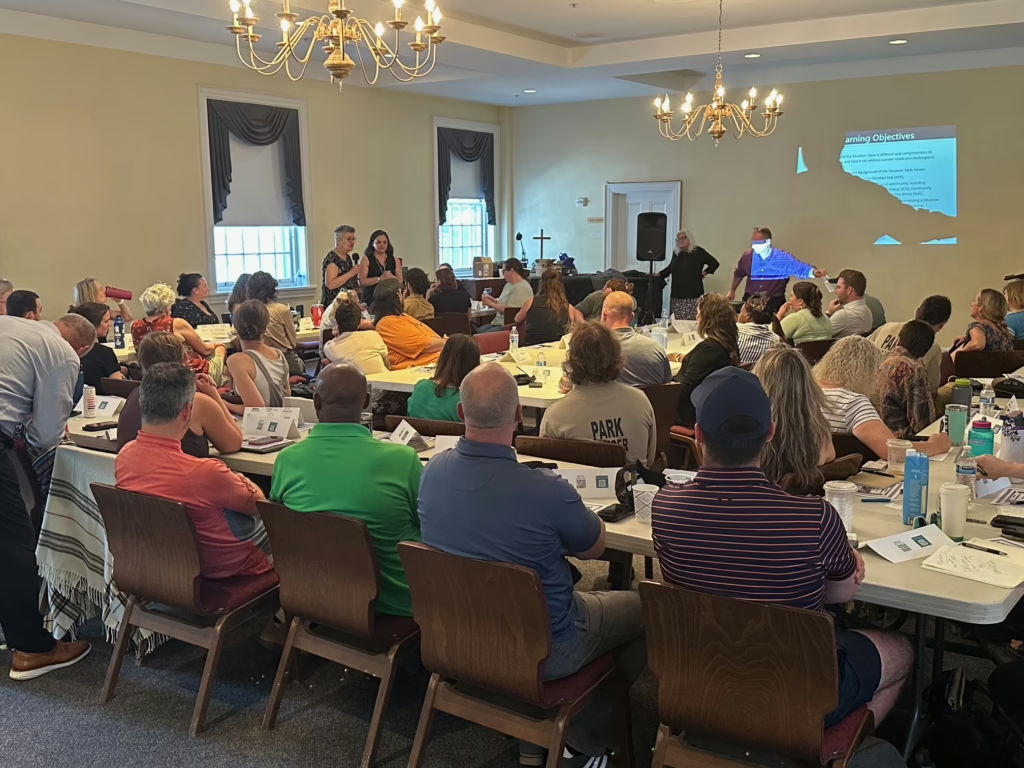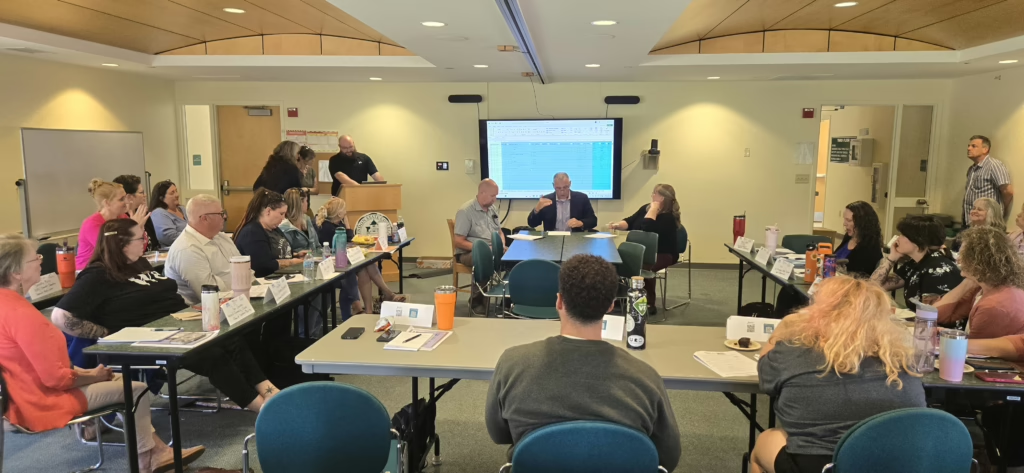FOR IMMEDIATE RELEASE
July 3, 2025
Burlington and St. Johnsbury, VT — In a bold step toward building safer, more resilient communities, Vermont hosted two comprehensive Situation Table trainings in Burlington and St. Johnsbury during the final week of June 2025. Over 120 professionals across healthcare, law enforcement, housing, peer recovery, youth services, and faith-based sectors took part in these trainings—designed to equip teams with a structured, collaborative process to respond to individuals at Acutely Elevated Risk (AER).
These events were sponsored and funded by the Vermont Public Safety Enhancement Team (PSET) Consortium, a cross-agency initiative guided by Governor Phil Scott’s 10-Point Public Safety Plan. PSET is chaired by the Commissioner of Public Safety in partnership with leaders from Vermont’s mental health, corrections, and human services agencies.

St Johnsbury Situation Table team

Burlington Situation Table team
Burlington Training: Urban Coordination and Community Empowerment
Held June 24–25, the Burlington training gathered over 60 local stakeholders, including representatives from:
- Burlington Police and Fire Departments, EMS, and the Mayor’s Office
- University of Vermont Medical Center and local health providers
- Howard Center, Pathways Vermont, Safe Harbor, and peer recovery groups
- Housing and justice partners including COTS, Spectrum Youth, and the Burlington CJC
Through intensive role plays, interactive scenarios, and guided discussions, participants gained clarity on the Four-Filter Process, data-sharing protocols, and coordinated outreach approaches. Common themes that emerged included the urgent need to address:
- Housing instability
- Mental health and substance use crises
- Homelessness and service access gaps
- Cross-agency fragmentation and limited coordination

St. Johnsbury Training: Rural Readiness and Cross-Sector Trust
From June 26–27, 59 participants convened in St. Johnsbury for a parallel two-day training and community mapping session. Agencies included NEKCA, Northern Counties Health Care, Community Connections, the Department of Corrections, local schools, recovery centers, and faith-based groups.
Key learning outcomes included:
- Clear understanding of the Situation Table script and process fidelity
- Strengthened interagency relationships
- Practical experience through mock tables
- Identification of local gaps in transportation, childcare, and referral handoffs
Participants emphasized a deepened sense of community hope, readiness, and action. Several local leaders volunteered to serve as Table Chairs, Data Recorders, and host facilitators, committing to the formal launch of their community Tables during the week of July 14, 2025.

A Statewide Network Built on Experience and Mentorship
These newest Tables in Burlington and St. Johnsbury build on the momentum of Vermont’s first four successful Situation Tables in Brattleboro, Rutland, Springfield, and Bennington. Throughout the trainings, attendees benefited from direct mentorship and firsthand insights provided by leaders from these earlier efforts:
- Michael Arace, Chair of the Springfield Table and member of the Vermont Department of Corrections
- Brattleboro PD Situation Table Team: Assistant Chief Jeremy Evans, Justin Johnston, and Knowles Wentworth (HCRS)
- Commander Matthew Prouty, Rutland City Police Department
Their shared experiences—from Table launch to data tracking, and navigating agency dynamics—offered practical strategies and reassurance to participants embarking on their own implementation journeys.
A Model for Statewide Replication
Both trainings were delivered by national facilitators from Cordata Healthcare Innovations, including:
- Scott Allen and Michael Botieri (Retired Police Chiefs)
- Nan Franks, a veteran behavioral health expert
- Tim Quigley, Senior VP at South Shore Health (MA)
Participants were trained in:
- Identifying and triaging AER situations using the Four-Filter Process
- Implementing the Situation Table Script with fidelity
- Legal and ethical data sharing through structured ROI practices
- Recording outcomes in the Risk Tracking Data (RTD) system for real-time analysis
“This training gives me hope that we can better support individuals in crisis—and each other,” shared one Burlington participant.
“It was powerful to learn from communities already making this work,” noted a St. Johnsbury attendee.
Next Steps and Long-Term Vision
Both communities are on track to formally launch their Situation Tables the week of July 14, 2025, with active follow-up plans to finalize team roles, conduct onboarding for absent agencies, and begin data collection for evaluation.
As Vermont continues to expand the Situation Table model statewide, these efforts in Burlington and St. Johnsbury underscore a shared commitment to early intervention, interagency trust, and coordinated care for those facing complex risks.
For more information or to get involved, contact:
Scott C. Allen
Executive Director, Community Engagement
Cordata Healthcare Innovations
📧 scott.allen@cordatahealth.com |
Michael Botieri
Executive Director, Community Engagement
Cordata Healthcare Innovations
📧 mike.botieri@cordatahealth.com |

